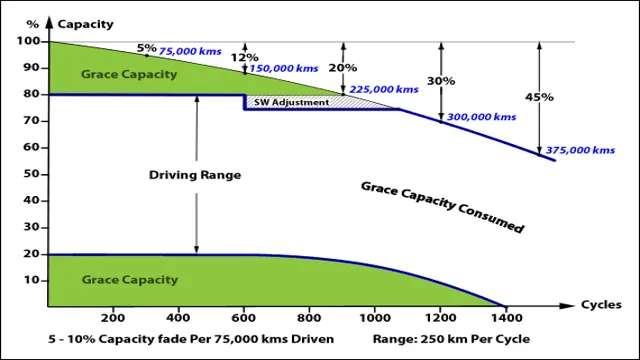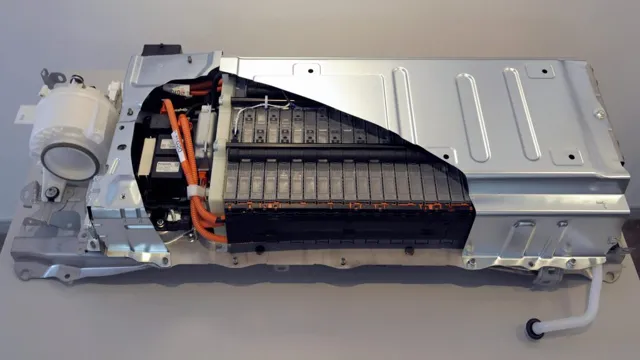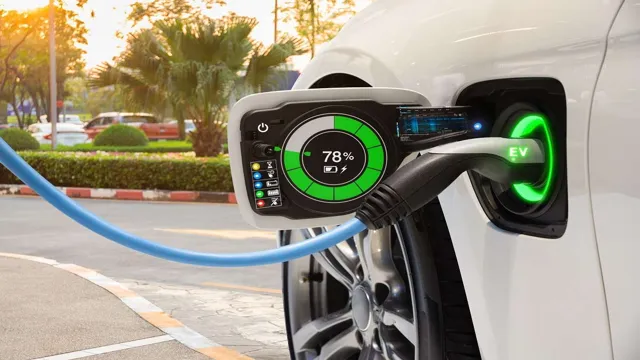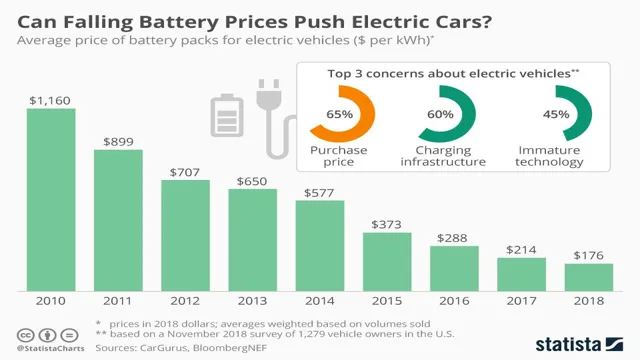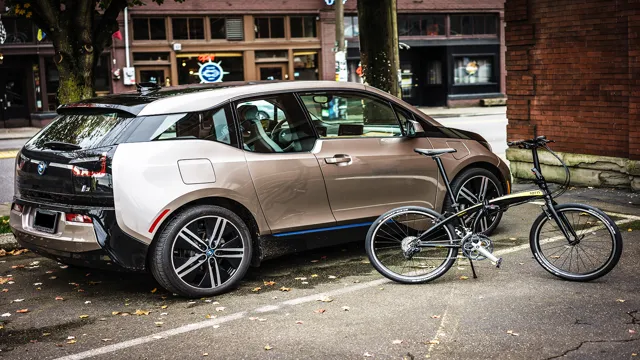Unlocking the Secrets of Electric Car Battery Life: Tips and Tricks to Maximize Your Range
If you’re like most people, you rely heavily on your electronic devices to help you stay connected and get things done. Unfortunately, the battery life of these devices can be a major issue. It’s frustrating when you’re in the middle of an important task and your battery dies.
You don’t always have access to an outlet or charger, so what can you do to maximize your battery life? In this blog post, we’ll explore some tips and tricks that will help you get the most out of your battery. Whether you’re using a smartphone, tablet, laptop, or other electronic device, these tips will help you extend your battery life and stay connected when you need it most. So, let’s dive in!
Electric Car Battery Basics
Battery life on an electric car is a crucial aspect to consider when purchasing an EV. The battery is the heart of the vehicle and determines the car’s range, performance, and charging time. Battery life can be impacted by various factors such as driving habits, temperature, and age.
The battery chemistry also plays a significant role in determining how long the battery will last. Lithium-ion batteries, which are commonly used in EVs, have a lifespan ranging from 5 to 15 years, depending on various factors. Battery management systems (BMS) are installed in electric vehicles to ensure the longevity and health of the battery.
BMS helps monitor the battery’s temperature and extends its life span. Proper maintenance and care significantly impact battery life. EV owners should be mindful of driving habits, temperature and always ensure the vehicle is charged correctly.
With proper maintenance, a high-quality battery pack can retain up to 80% of its original capacity for up to 8 years, making electric cars a sound investment.
Understanding Battery Range and Capacity
electric car battery range So, you’re thinking about going electric with your next car purchase. Electric vehicles (EVs) are becoming increasingly popular for their efficiency and eco-friendliness, but understanding the battery range and capacity can be a little bit daunting at first. Let’s start with some basics.
Battery range refers to the distance an EV can travel on a single charge, and it varies significantly from model to model. Factors such as battery capacity, driving style, temperature, and terrain can all affect the range of your electric car. Battery capacity, on the other hand, refers to the size of the battery pack and its ability to store energy.
The larger the battery capacity, the longer the range of your vehicle. It’s important to note that a larger battery capacity doesn’t always mean a longer range, as other factors can also come into play. It’s important to consider the battery range and capacity when choosing an EV that will meet your specific needs.
However, with increasing advances in battery technology, the future looks bright for electric vehicles.
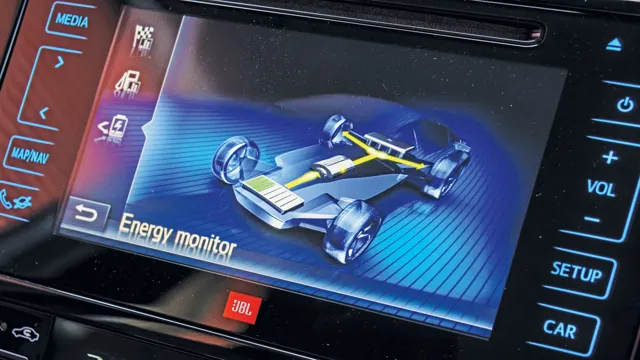
Factors Affecting Battery Life
Electric car battery life is dependent on a variety of factors. Primarily, how much energy the battery can hold and how quickly it can discharge the energy can influence its life. The battery’s capacity is measured in kilowatt-hours (kWh), and the higher the number, the longer the battery life.
Additionally, the battery’s chemistry is essential for its longevity, and different car manufacturers use different types. Lithium-ion batteries are the most widely used for electric vehicles due to their high energy density and long lifespan. However, the battery’s lifespan is also dependent on how well it is maintained and charged.
Charging a battery too often or letting it discharge completely can adversely affect its lifespan and performance. It is important to use the recommended charger and avoid extreme temperatures as they can reduce battery life. Therefore, choosing a car with a large battery capacity, utilizing proper maintenance, and following best charging practices can all help ensure the electric car battery’s longevity.
Tips for Extending Battery Life
When it comes to owning an electric car, extending the battery life is a top priority. Luckily, there are some tips that can help you do just that. First, avoid rapid charging whenever possible.
Rapid charging can cause more wear and tear on the battery, ultimately shortening its lifespan. Instead, opt for slow and steady charging. Second, pay attention to the temperature.
Extreme cold or heat can negatively impact the battery life. If possible, park your electric car in the shade or a garage to help regulate the temperature. Third, try to minimize the use of high-energy features like air conditioning and heating.
These features can drain the battery quickly and drastically reduce how far you can go on a single charge. By implementing these tips and being mindful of your usage, you can extend the battery life on your electric car and enjoy a longer, more efficient driving experience.
Reduce Energy Drain While Driving
When it comes to maximizing your car’s battery life, there are a number of easy tips and tricks that can make a big difference. One of the main ways to reduce energy drain while driving is to avoid using accessories like air conditioning, heated seats, and the radio whenever possible. Additionally, regularly maintaining your car’s battery and electrical system – including checking and cleaning battery terminals and monitoring your car’s energy output – can help ensure that your battery is functioning at optimal levels.
Finally, driving at moderate speeds and avoiding quick acceleration and sudden stops can also help to extend your car’s battery life. By following these simple tips, you can help ensure that your battery lasts as long as possible and that your car remains in top shape, no matter where you’re headed.
Optimize Charging Habits
One important step you can take to extend your battery life is to optimize your charging habits. It can be tempting to let your phone or laptop battery drain completely before charging it back up, but this can actually be harmful to the battery’s health. Instead, it’s best to keep your devices charged between 20% and 80%, as this is the range in which the battery will experience the least amount of strain.
Additionally, try not to charge your device overnight or for extended periods of time, as this can overheat the battery and cause it to degrade more quickly. Finally, it’s a good idea to use a high-quality charger that is designed for your specific device, as off-brand chargers can sometimes cause damage to the battery. By following these simple tips, you can help ensure that your battery lasts as long as possible.
Maintain Ideal Battery Temperature
Maintaining ideal battery temperature is crucial in prolonging its lifespan and ensuring it operates optimally. One essential tip for extending battery life is to avoid exposing it to extreme temperatures. High temperatures can cause permanent damage to the battery’s internal components, while frigid temperatures can reduce its ability to hold a charge.
Ideally, batteries should be kept at room temperature, which is around 20-25 degrees Celsius. If you’re in a hot or cold environment, consider storing your device in a temperature-controlled area. For instance, in the summer, you could keep your device in a cool, shaded area to prevent it from overheating.
Likewise, in the winter, avoid exposing your device to icy conditions as it may damage the battery and cause it to die prematurely. By following these tips, you can extend your battery’s lifespan and keep it running smoothly for longer periods, reducing the need for frequent replacements.
Real-Life Examples of Electric Car Battery Life
Battery life on an electric car is one of the main concerns for potential buyers. However, there are some real-life examples that dispel any doubts. For instance, the Tesla Model S has been tested by various sources and shows an average battery degradation of only 6% after 50,000 miles, which means it could last for a decade or more before needing replacement.
Another example is the Nissan Leaf, which has shown similar results. In fact, one couple in Arizona owns a Leaf that has already surpassed 175,000 miles and still has about 90% of its original battery capacity. These real-world examples demonstrate that modern electric car batteries can endure far longer than many people think.
Of course, individual battery life will depend on various factors such as usage, climate, and maintenance, but these examples show that electric car batteries are not only sustainable but also reliable.
Comparing Battery Life Across Models
When it comes to electric cars, battery life is a crucial factor to consider before making a purchase. The range of an electric car can vary drastically depending on factors such as the make and model, driving behavior, temperature, and terrain. For example, the Tesla Model S Long Range has a range of up to 402 miles, while the Nissan Leaf has a range of up to 226 miles.
However, it’s important to keep in mind that these ranges are based on ideal conditions and may be lower in real-life situations. A better way to determine battery life is to look at real-world examples. For instance, a Tesla Model 3 owner reported a range of 250 miles in cold weather, while a Chevrolet Bolt driver reported a range of 200 miles during a road trip.
It’s also worth noting that battery life may decrease over time as the battery ages and loses its capacity. Overall, it’s important to do your research and consider your driving needs before choosing an electric car with a specific battery life.
Battery Degradation Over Time
Electric Car Battery Life Electric car battery life is a hot topic in the automotive industry, with many people wondering how long the batteries in their electric vehicles will last. While it is true that electric car batteries do degrade over time, the extent of this degradation varies depending on many factors, such as the type of battery, the vehicle’s usage, and the environment in which it operates. For example, the Tesla Model S is known for its impressive battery life; some owners have reported driving over 300,000 miles before needing to replace their batteries.
On the other hand, some Nissan Leaf owners have seen drastic degradation in their battery capacity after only a few years of use. In general, it’s important to keep in mind that battery degradation is a natural part of the electric car ownership experience. However, proper maintenance and care of the battery can go a long way in extending its useful life.
Future of Electric Car Batteries
The future of electric car batteries looks promising, especially concerning battery life on an electric car. Manufacturers continually strive to improve battery technology, increasing their longevity and capacity. With advancements in materials, manufacturing processes, and overall design, we can expect to see even more extended-range electric cars on the road.
Long gone are the days of range anxiety, where drivers were constantly worried about running out of juice on their daily commute. Advancements in battery technology also ensure quicker charge times, adding to the convenience of owning an electric car. For instance, the leading electric vehicle manufacturer, Tesla, provides its drivers with an extensive network of Superchargers, where they can charge their car’s battery to around eighty percent in under thirty minutes, allowing them to continue their journeys with peace of mind.
With constant innovation and investment in battery technology, we can expect battery life on an electric car to keep improving, cementing the electric car as a more reliable, economical, and eco-friendly option for drivers.
Conclusion
In the world of electric cars, battery life is the heartbeat that keeps the vehicle moving. It’s the fuel that powers a greener and more sustainable future, allowing us to power our cars without the harmful emissions of traditional gas-powered engines. While it can be a source of concern for some, it’s ultimately what allows us to keep driving towards a better tomorrow.
So next time you’re on the road in your electric car, take a moment to appreciate the power and potential of your battery, and all it represents in the fight against climate change.”
FAQs
How long will a fully charged electric car battery last?
The range of an electric car depends on the type of car and the capacity of its battery. On average, a fully charged electric car can travel between 100 to 300 miles before needing a recharge.
Can the battery life on an electric car be extended?
Yes, there are several ways to preserve your electric car’s battery life. These include keeping the battery level between 20% and 80%, avoiding extreme temperatures, and avoiding frequent fast charging.
What is the typical lifespan of an electric car battery?
The lifespan of an electric car battery varies depending on the type of battery and the car’s usage patterns. Many electric car batteries have warranties of 8 years or 100,000 miles, but some batteries can last up to 20 years.
Can you replace the battery on an electric car?
Yes, the batteries on electric cars can be replaced. However, the cost of battery replacement can be expensive and may not be covered under warranty. It is important to consider the cost of battery replacement when purchasing an electric car.
